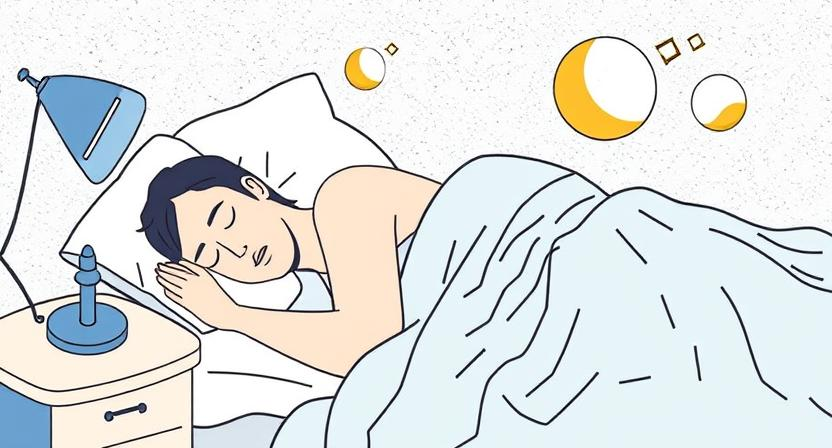If you are an athlete or interested in any sport, then you have to pay attention not only to training and diet, but also to sleep. Because sleep is not just rest, but an essential part of recovery. Whether you are a runner, a weightlifter, or play cricket or football without good sleep your performance will suffer.
Today we’ll look at how sleep affects an athlete’s strength, endurance, and overall fitness, and how much sleep needs to be taken so that both recovery and performance remain at the top level.
Impact of Sleep on Physical Performance
If you want to play with full energy and stamina, then getting good sleep is mandatory. From sleep:
- Muscle Strength Improves: During sleep, the body repairs muscle fibers that are damaged during training.
- Reaction Time is Fast: Athletes who do not sleep have slow reaction time, which can be dangerous in any sport.
- Speed and Endurance has been improved: According to a study, athletes who slept 8-10 hours had higher running speed and stamina.
- Injury risk is reduced: Not getting proper sleep makes the body feel tired, which increases the chances of muscle strains and injuries.
Example: Top athletes like LeBron James and Usain Bolt sleep for 9-10 hours daily so that their performance remains at their best.
Sleep and Mental Focus
Sports is not just a game of physical strength, but also of mental sharpness. If the need is not fulfilled, then:
- Concentration level has decreased: A tired mind becomes slow in making decisions, which is dangerous for any sport.
- Stress and anxiety occur: Lack of sleep increases cortisol (stress hormone) which can negatively impact an athlete’s performance.
- What is Motivation and Confidence: Sleep deprived athletes are not able to focus as much in training and their confidence level appears to be low.
Example: Tennis legend Roger Federer has told in an interview that he needs 10-12 hours of sleep so that his mind and body function perfectly.
Sleep Recovery Process: Repairing and Rebuilding the Body
Sleep is the most important thing for the repair and recovery of the body after training. During sleep:
- Growth Hormone Release Happens: This hormone rebuilds and strengthens the muscles.
- Protein synthesis becomes faster: Regeneration of muscles has improved.
- Inflammation has reduced: During sleep, the body reduces inflammation which helps in injury prevention.
- Energy Stores Refill Hote Hain: While we sleep the glycogen levels are recharged which helps in the next day’s training session.
Example: Olympic swimmers like Michael Phelps have always highlighted the importance of proper sleep, as without it their recovery time slows down.
How much sleep is necessary?
If you are a professional or aspiring athlete, It is ideal to have 8-10 hours of sleep daily., But it is also important that the quality of sleep should also be good.
- Deep sleep is very important: This phase helps in repairing the body and restoring energy.
- REM sleep is necessary for mental recovery: This phase improves focus and cognitive function.
- Nap also has benefits: If the sleep at night is not complete then it is advisable to take a power nap of 20-30 minutes during the day.
What would happen without sleep? Negative Effects on Performance
If you do not sleep properly then:
- Reaction time will become slow: Split-second decisions are very important in sports, and reaction time decreases due to a lack of decisions.
- How has coordination worked? The body balance and coordination of athletes who do not sleep enough become weak..
- The risk of injury increases: Sleep deprivation slows down the healing process of the body.
- Endurance and stamina have decreased: Low energy is felt in sports like running, swimming, or cycling.
- Immune System has become weak: Frequent illnesses can lead to missed training which can directly impact performance.
Example: Studies have proven that if an athlete sleeps for only 4-5 hours, his sprinting speed and accuracy can drop by 30%.
Tips for Better Sleep: How to Optimize Sleep?
If you are a serious athlete and want to improve your sleep, follow these tips:
- Maintain a consistent sleep schedule: It is necessary to sleep and sleep at the same time daily.
- Improve Sleep Environment: It is best to sleep in a dark and noise-free room.
- Screen Time Reduction: Stop using mobile and laptop 1 hour before going to bed.
- Caffeine and heavy meals should be avoided: Taking coffee and junk food at night can disturb sleep.
- Relaxation Techniques Follow Karein: Meditation, deep breathing and stretching relax the body.
- How to use Power Nap: If you feel a little tired during the day, you can take a 20-30 minute nap.
Conclusion
For an athlete sleep is a secret weapon. If you focus on training, diet, and recovery, but ignore sleep, you will never achieve your best performance. Getting good sleep improves stamina, energy, focus and overall health.
So if you want to become a better athlete, then Improve your sleep cycle from today! Sleep smart, train hard, and get ready to become the best version of yourself.
